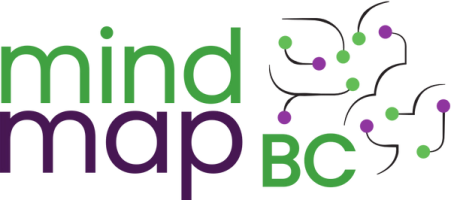In Good Company Counselling
Summary
Individual counselling
Relationship counselling
Addictions counselling
CVAP
Sliding Scale Available
Seniors
2S/LGBTQ+ Affirming
Trans Affirming
Two-Spirit Affirming
LGBQ+ Affirming
Remote services
In Good Company Counselling is a group counselling practice in downtown Vancouver that offers individual, couples/relationship, and sex therapist services in person and online. With every interaction, we strive to maintain a warm, welcoming, and affirming approach while inviting our clients to explore their inner world in a safe, contained, and informed environment. While each clinician maintains their unique approach, our practice focuses concerns around Queer/LGBTQ2IA+ identities, sex/sexuality, eating disorders, OCD, trauma, and grief. We also are experienced in more generalized mental health concerns such as anxiety, depression, stress, and life transitions.
In Good Company Counselling was founded on the basis that counselling shouldn't be stuffy or overly clinical, but a reflection of the community we serve. Our counselling team includes many members of the queer community, and we are fortunate to offer services in both English & Spanish. For folks concerned about financial barriers to counselling we are able to offer sliding scale rates.
For more information on our services and team please visit www.ingoodcompanycounselling.ca or email
connect@igccounselling.ca
Want to learn more about this service’s work with Two-Spirit, trans, LGBQ+ people?
We invite all service providers listed on MindMapBC to answer the following questions. These questions were developed in collaboration with community members, researchers, and mental health and other service providers. They're intended to help us understand what a service provider or organization is doing to affirm and support sexual and gender diverse service users.
See below for responses for this listing.
Want to learn more about our screening questions and filters?
Are the forms used in your practice inclusive of various sexual orientations and gender identities (e.g., opportunities to fill in pronouns, etc.)?
—Yes
Any client documentation includes a space to state pronouns and gender identity
Do you collect and use preferred names (rather than legal names) for all communications?
—Yes
Any client documentation includes a space for preferred name
Do you and your colleagues have experience providing services that support clients with navigating gender dysphoria*?
*TransCareBC describes gender dysphoria as a term "intended to describe the distress some trans people experience with relation to their gender identity, particularly if they would like to transition but have not yet done so".
—Yes
Our team has completed TransCareBC's training for clinicians and services providers and supports the trans community at any stage of their journey/transition.
Please tell us how equipped you feel to support a client in determining if/when their mental health symptoms are related to their gender-related experiences or other factors? Please describe your response choice below.
—Very confident
Each team member has undergone additional training and maintains a cliented centred approach when identifying distress within a client.
Do you/your colleagues understand the difference between gender dysphoria and mental health conditions/symptoms that are unrelated to gender dysphoria or distress?
—Yes
Each team member has undergone additional training and maintains a cliented centred approach when identifying distress within a client.
Do you and your colleagues have experience working with people who identify as living with a disability or chronic illness? Please tell us more about your experience and any training you have received.
—Yes
This is an area of specialty for several members of our team who identify as folks living with a chronic illness and/or cancer survivorship.
Are you and your colleagues aware of what specific barriers may exist for Two-Spirit, queer, or trans Indigenous individuals accessing your services?
—Yes
Each team member engages in ongoing education and training to better serve the two spirit, indigenous, and trans indigenous folx within our community.
Are you and your colleagues aware of what specific barriers may exist for LGBQ individuals accessing your services?
—Yes
Yes, 4/5 members of our team self-identity as LGBTQ2IA+ and all are steadfastly committed to anti-oppressive practices.
Are you and your colleagues comfortable asking relevant questions about gender identity and sexual orientation?
—Yes
This a daily practice in our work as many clients seek IGC out for this reason.
Do you offer Indigenous 2S/LGBTQ+ specific resources, for example Indigenous Elders or Knowledge Keepers?
—Yes
Our practice maintains an extensive community resource list of vetted resources to aid individuals in gaining greater access to healing practices that fit their identity and needs.
Do you and your colleagues ask clients about pronouns and use them appropriately?
—Yes
This is a standard practice and apart of every session.
Are you and your colleagues aware of what specific barriers may exist for trans individuals accessing your services?
—Yes
Yes, we continue to educate ourselves on anti-oppressive practices and language in support of our trans siblings.
Does your practice have gender-neutral washrooms?
—Yes
Are there clear anti-discrimination policies that include gender identity, gender expression, and sexual orientation in your organization or practice?
—Yes
This is a part of our values framework, as required by our contract.
Are all individuals involved in service provision actively engaged in decolonizing their practices and/or organization? If yes, please type below what actions you and/or your organization are taking.
—Yes
- We currently meet once monthly to discuss approaches to decolonizing our work including questioning the practices and approaches that are used in our work with clients with a focus on anti-oppression and decolonization. Our team engages with the work of Vikki Reynolds, Reflecting on Justice, and other organizations that actively question systems and practices relevant to our field.
Are all individuals involved in service provision actively engaged in anti-racist practices, policies, and systems in their care model?
—Yes
This is a part of our values framework, as included in our contract.
Address
Unit 205 - 402 W Pender St
Vancouver, BC
V6B 1T5
Last updated: July 11, 2023
Request changes —

